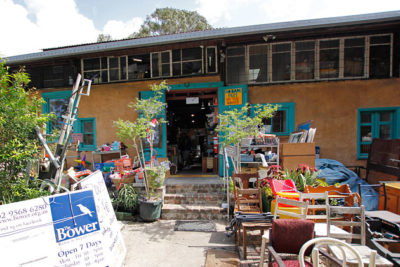Ever had to suffer through the loud hum of a faulty fridge – until it just becomes background noise?
Got a washing machine that only co-operates if you bang the top three times and say “please” before opening?
If you’re like me, you’ve probably dropped your iPhone about a million times, and found yourself in a pickle about whether to spend hundreds of dollars to replace a cracked camera lens, or just to buy yourself a whole new phone.
If you’ve ever bought a new tech or home appliance item rather than having it fixed – you’re certainly not alone. In many cases, consumers find it cheaper and easier to throw an item away rather than try and fix it.
Some companies go so far as to discourage consumers from fixing items by installing software to shut down unauthorised repairs, making tools difficult to source, or they copyrighting repair instruction manuals.
The Report
The results of a Federal Productivity Commission inquiry into Right to Repair laws in Australia released last week found that there are “significant and unnecessary barriers” to consumers’ Right to Repair.
The report recommended sweeping changes to Australia’s consumer and copyright laws that would make repairs to consumer products cheaper, easier, and far less wasteful for the community.
The key findings of the report are that the Australian government should:
- Require suppliers to provide access to repair supplies
- Undertake more detailed investigations into specific products including mobile devices and medical devices
- Amend copyright laws to allow consumers to access repair manuals
It also recommends that warranties be changed to state that consumers won’t lose their rights to a repair, replacement or refund if they use an unauthorised repairer.
The report also recommends that product packaging labelling should clearly state how repairable and durable a product is – something that consumer advocacy group CHOICE has been pushing for, and that over in France was already implemented in January this year. These labels are similar to the water and energy efficiency star labels that are already seen on common household appliances in Australia.
What is the Right to Repair?
According to a United Nations report, e-waste is the world’s fastest-growing waste stream, with 53.6 million tonnes generated in 2019, up 21 per cent from the previous year.
The Right to Repair means that rather than throwing items away, consumers are able to fix these items – significantly reducing waste.

The Bower Repair Cafe Sydney allows people to bring in their faulty items to get fixed by a volunteer.
That means that instead of throwing away your faulty washing machine or laptop and buying a new one, you can give your faulty item a much longer lifespan.
You can take your faulty items to a third party to repair it for you, or try and fix it yourself. In Sydney’s North, the Repair Cafe is a volunteer-run community group where you can bring your faulty items in to be taught how to fix them by a skilled repairer – at no charge.
Last month, Apple announced its Self Service Repair program, which will offer tools, parts, and instruction manuals to help Apple users to repair their iPhones.
A Global Movement
Right to Repair advocates have been pushing back against restrictive barriers to repair for years.
Australia has been lagging behind the rest of the world. The United Kingdom has already introduced new regulations that would give consumers and third party businesses access to spare parts for common household appliances like washing machines – but crucially, not for smartphones or laptops.

Repair Cafés allow people to learn how to repair from skilled volunteers in the community
In the United States this year, tech company lobbyists from Apple, Microsoft, and Alphabet Inc have successfully halted more than half of the 27 state-level right to repair bills.
The Fifth Estate reported in July that US President Joe Biden gave the Federal Trade Commission (FTC) authority to target “unfair anticompetitive restrictions on third-party repair or self-repair items”:
Global progress for the right to repair…of sorts
The Australian federal government is considering the report.








